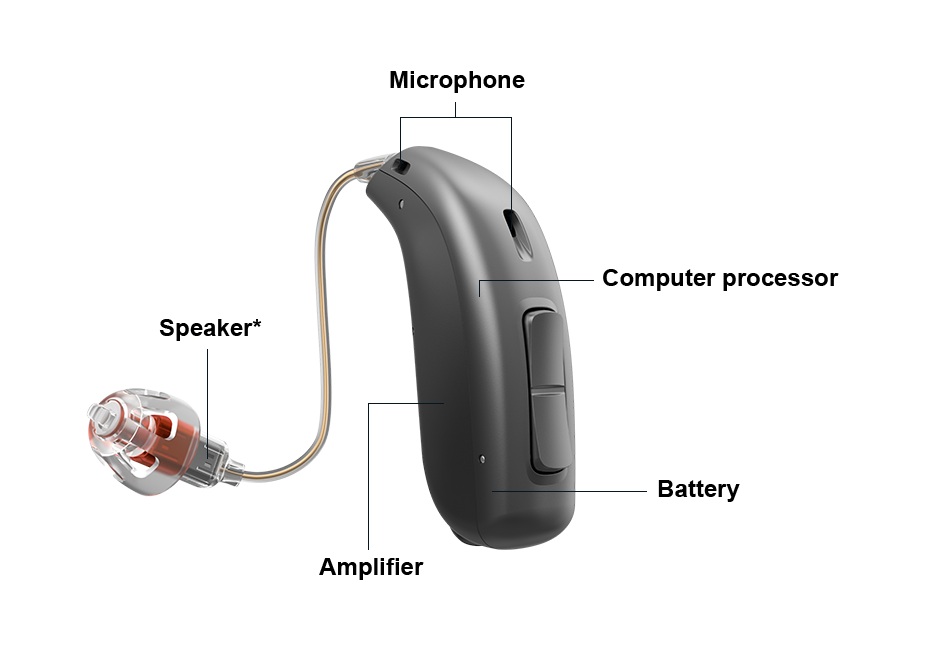If you’ve been noticing trouble with your hearing recently, the thought of a hearing aid may have popped up in your mind. There is a wide range of hearing aids out there that have been proven to assist people with different hearing impairments. However, not everyone is suited to a hearing aid, with some types of hearing loss being too severe in order to benefit from the use of one of these devices. This blog will help break down how exactly hearing aids work and whether or not they can be helpful with your hearing.
Table of Contents
How do hearing aids work?
Although there are different models of hearing aids work, they all basically follow the same principles in their operation.
- Small microphones pick up sounds from your environment
- The processing chip makes an analysis of these sounds
- The sounds are sent to an amplifier, which directs them out through the loudspeaker
- Your inner ear is then able to hear these amplified sounds
- These sounds are received as electrical impulses by the brain
Depending on the type of hearing aid you have, these devices may sit in the ear, or behind the ear. The emergence of digital hearing aids in Perth has allowed for more automatic features that work to adjust the volume levels for more optimum performance in different environments.
How are hearing aids helpful?
Your type of hearing loss will play an important role in how helpful a hearing aid may be for you. In some circumstances, you may benefit from a hearing aid in each ear, particularly if your hearing loss is prevalent in both ears. Hearing aids themselves have shown to improve people’s comprehension and hearing in those that have hearing loss as a result of damage to their inner ear.
Cells in the inner ear, known as hair cells, can get damaged as a result of an injury, underlying medical issue, or as a natural part of the aging process. A hearing aid works to enhance the sound waves entering your ear and thus can help those who are suffering from this type of hearing loss. Everyone’s hearing is different, and so these hearing aids need to be finely tuned by an audiologist to ensure that they’re at the right level for your condition. Simply put, the more severe the hearing loss, the greater the amplitude you will need to set the hearing aid to. However, in some situations a hearing aid may prove to be ineffective, as the inner ear may be too severely damaged.
How do I know which hearing aids work right for me?
The first step in finding a hearing aid that works properly for you is to visit a qualified audiologist. By having a series of hearing tests and an analysis from an audiologist, they can begin to see the type of hearing loss you may have and they will recommend some certain hearing aids that could help for your condition. You might be trying to understand what’s the best hearing aid on the market, but your audiologist may advise you on a completely different device that is more suited to your needs. Likewise, they can help to assess whether a hearing aid will be effective for your hearing loss, and whether another solution may be helpful.
Hearing aids can be a life-changing medical device for some people, and they’ve definitely come a long way over the past decade. You should always visit a licensed audiologist to make sure that you are a suitable candidate for a hearing aid, and to have one fitted correctly for your ear.

